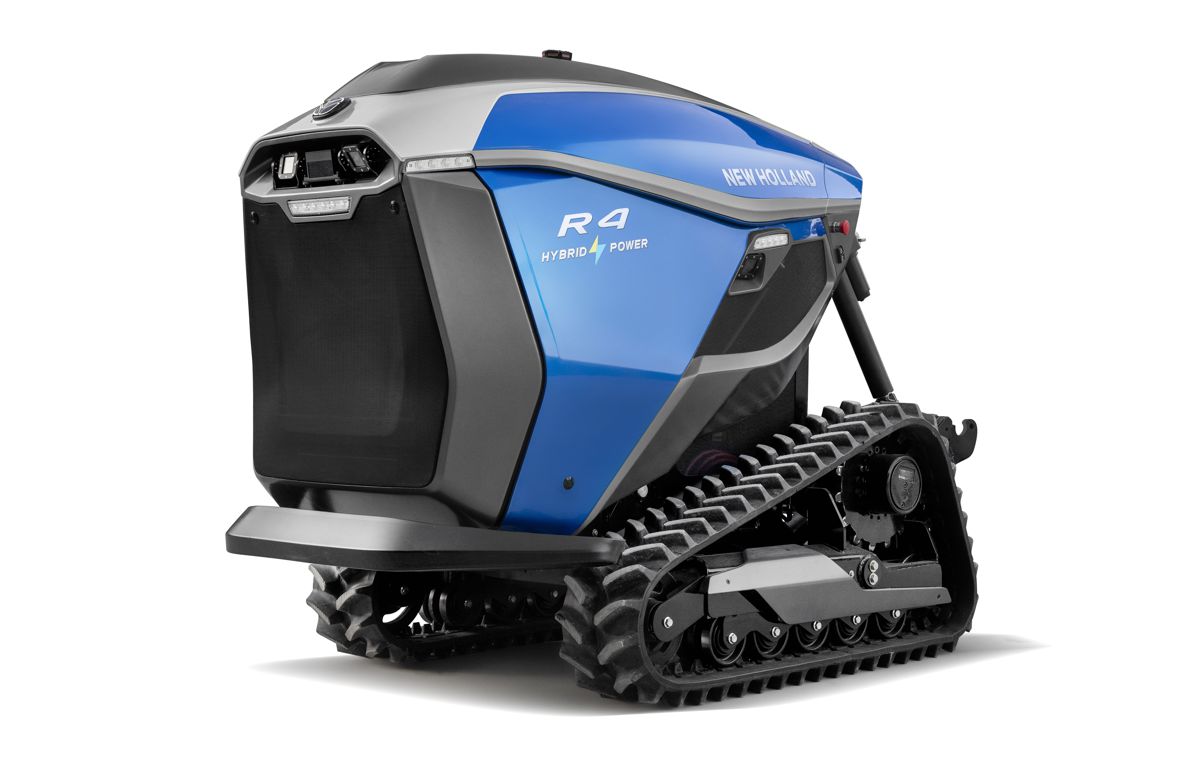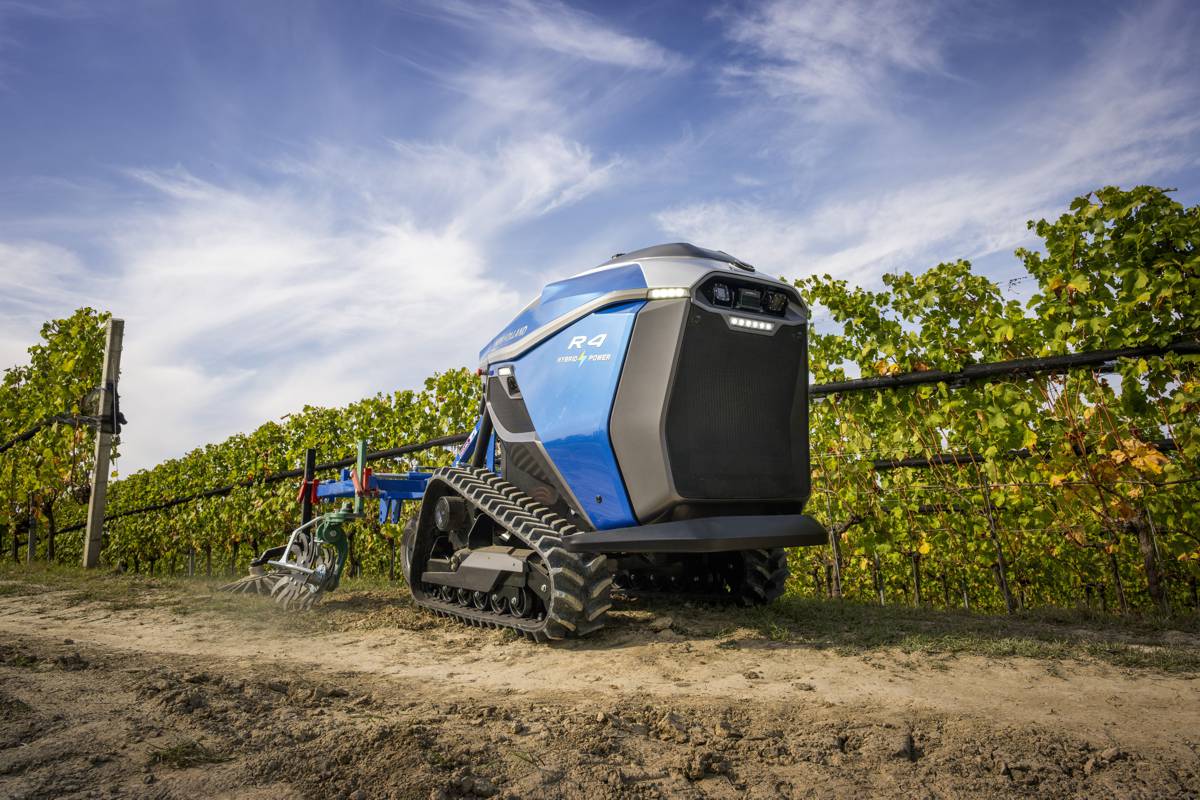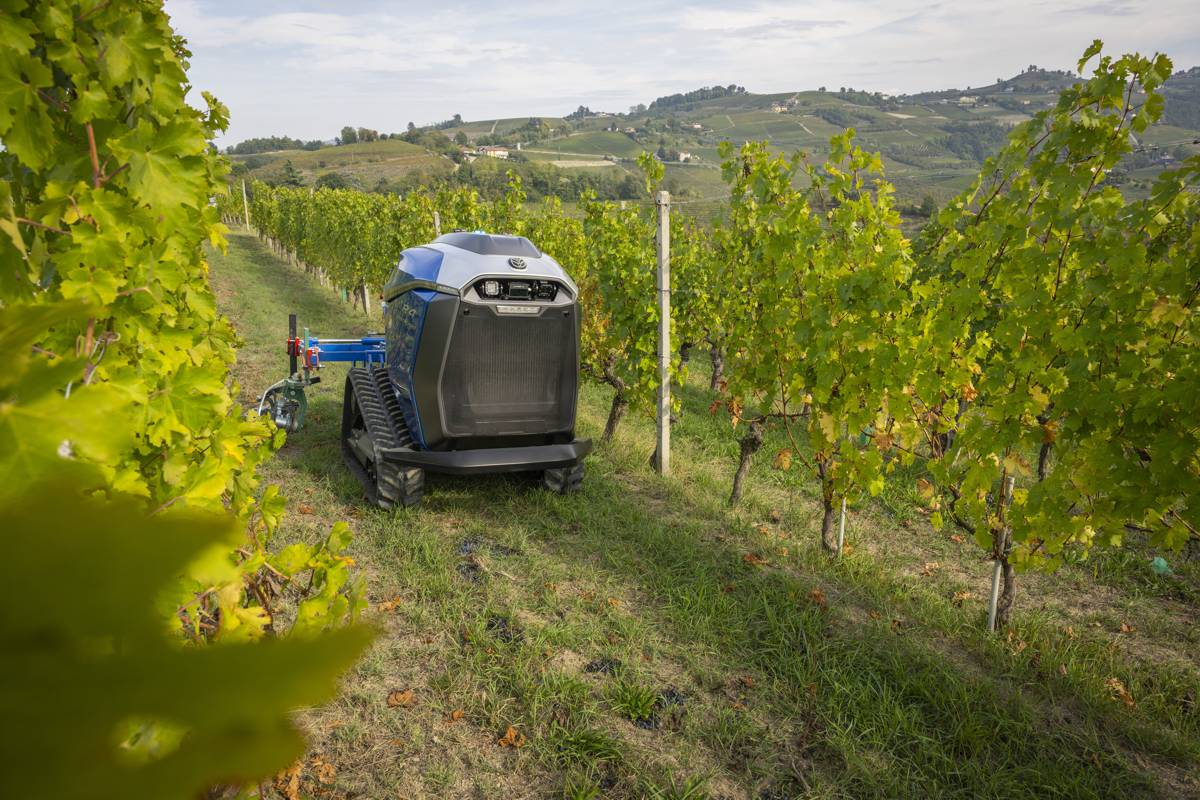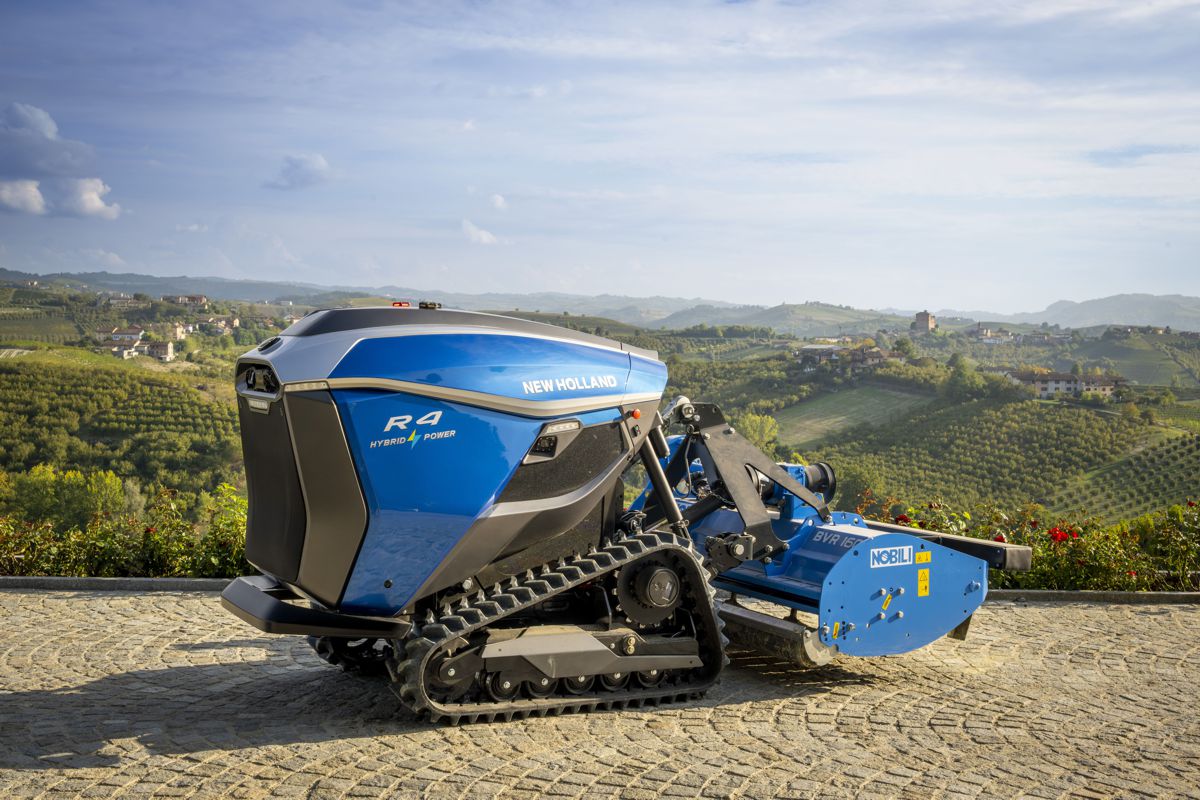Autonomous R4 Robots Redefining Sustainable Specialty Farming
New Holland has launched an ambitious concept designed to reshape vineyard and orchard operations with the introduction of its R4 autonomous robot series. The move arrives at a critical moment for the global specialty crop sector, which continues to grapple with mounting labour shortages and growing pressure to produce food more sustainably.
High-value crops are witnessing steady growth in global demand, yet the industry’s capacity to meet this appetite hinges on solving persistent labour challenges. As Thierry Le Briquer, Grape, Olive and Coffee Global Manager at New Holland explains: “High-value crops have huge market potential, but growers face production challenges including skilled labour shortages for highly repetitive work during seasonal peaks.” He adds: “R4 robots have been developed to automate such jobs, boosting both efficiency and sustainability with a zero-emission solution.”
A Ground-Up Redesign for Autonomy
Developed by engineers at CNH’s R&D Centre in Modena, Italy, and the New Holland Centre of Excellence for Specialty Harvesting in Coëx, France, the R4 project consolidates decades of expertise into a compact, autonomous platform. The strategy is straightforward: deploy automation for repetitive low-value tasks while freeing human workers to focus on skilled, value-added activities.
Tasks such as inter-row mowing, tillage and routine spraying — all of which consume significant time in vineyards and orchards — are now handled by the R4 units. The robots are controlled via an app and guided through a fusion of GPS, LIDAR and high-resolution vision cameras, enabling safe and precise field navigation.
Le Briquer highlights the departure from traditional machinery design: “R4 is an all-new concept — there is no cab. It has been designed fresh from the ground up, yet it is built entirely on our in-house foundation and using our expertise in electronics, powertrains, precision tech, and more. It’s the newest member of our product family, joining our lineup alongside tractors, grape harvesters, and other machines.”
He continues: “What makes it even more powerful is that it leverages the same autonomous tech stack and components we’ve developed for our cash crop and row crop platforms, showing the scalability and flexibility of our solutions. It fits right into our full product offering, sharing systems such as FieldOps and the same autonomy platform used across both cash crop and specialty machines. This makes it highly flexible, easy to upgrade, and well-supported for the future.”
To ensure practical application across varied specialty crop environments, New Holland has released two versions of the R4 platform: R4 Electric Power and R4 Hybrid Power.

R4 Electric Power
Targeted at narrow, high-value vineyards, this fully electric model features a 40 kWh battery pack, offering quiet, emission-free operation. With a maximum height of 1.38 metres and a width of only 0.7 metres, it can navigate tight crop rows that range from 1.0 to 1.5 metres.
Despite its compact form, the R4 Electric Power weighs just one tonne and is equipped with a custom-designed ultra-compact hitch with a 500 kg lift capacity. It powers electric implements natively, eliminating the need for hydraulic oil. This lowers maintenance, cuts system complexity and reduces component weight.
R4 Hybrid Power
For larger orchards and fruit producers, the R4 Hybrid Power provides extended autonomy and higher performance. Its hybrid architecture combines a 59 hp (44 kW) HVO-compatible diesel engine with an electric generator pack. This configuration delivers a power-to-weight ratio far exceeding that of traditional specialty tractors.
The hybrid unit weighs 1,400 kg, measures 1.2 metres wide and works efficiently in row spacings of 1.5 metres and above. With double-pass capability, it ensures full coverage across extensive orchards.
When conditions allow, the machine operates in fully electric mode using two 4 kWh batteries. The Cat I/II hitch is electrically powered and maintenance-free, and growers can rely on a traditional 540 rpm PTO with intelligent progressive clutching. An additional 48V/12kW e-PTO socket opens opportunities for future generations of electrically driven implements.

Intelligent Implement Control
New Holland has built intelligent electrical implement management into both R4 platforms. These systems prioritise safety while reducing environmental impact.
Automated functions include:
- Flow rate control during spraying
- Automatic headland management
- Canopy gap on/off switching
- Canopy height-based application adjustment
Research is also underway to introduce disease-detection-driven spot spraying, which could dramatically reduce chemical use.
A Vision for Fully Autonomous Operations
New Holland’s wider vision for the R4 series is clear — a future where the robots work autonomously with only remote supervision.
As Le Briquer puts it: “Our goal was to create fully autonomous machines requiring only remote supervision. R4 is a sustainable, intelligent, and adaptable robotic solution that offers exceptional value and a lower total cost of ownership compared to current alternatives. Built with proven components from within our ecosystem, R4 Electric and Hybrid Power gives farmers a reliable, future-ready advantage as they look to boost productivity and meet today’s labour and environmental challenges.”
The R4 robot series represents a step-change in specialty crop production. By aligning automation with sustainability and operational efficiency, New Holland is positioning growers to respond to market expectations while safeguarding long-term environmental health.






























